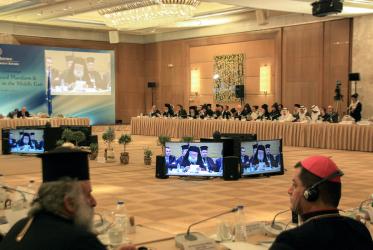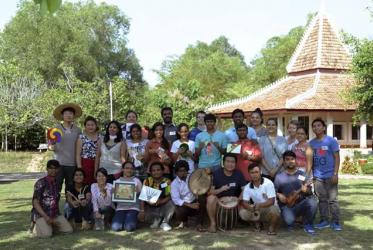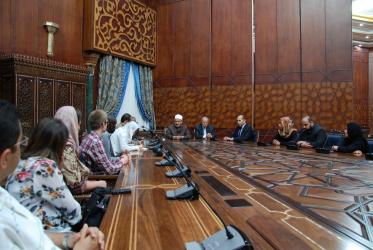Displaying 101 - 120 of 147
26 April 2016
Catholic-WCC group pursues new mandate
13 April 2016
Religious leaders as agents of peace in the Americas
02 March 2016
Religion and Violence Prevention in the Americas
28 February - 01 March 2016
Washington D.C., United States - Attendance by invitation only.
Symposium focuses on religion, violence, extremism
04 February 2016
International conference addresses challenges in the Middle East
22 October 2015
Faith organizations assess COP 20 on the way to Paris
28 January 2015












